UPDATE | March 14, 2024
For those who have passed numerous hurdles such as EJU and English exams, there is an "interview test" next. When you imagine a conversation with an interviewer, you may feel anxious about how it will go and how you should prepare. This time, a former international student who took interviews at numerous universities and was accepted into several schools will explain the process of entrance interviews and how to prepare for them!
INDEX
 First of all, how is the interview test conducted? There are four main points that schools want to confirm from international students during interviews.
First of all, how is the interview test conducted? There are four main points that schools want to confirm from international students during interviews.① Motivation to learn & learning status
Above all, school is a place for studying and research. It will test how seriously you have taken your studies and research so far, as well as your "readiness" or "seriousness" in how you will approach your studies from now on.
Therefore, based on what you like and what you want to be in the future,Image of what you want to do after entering universityThink about what you will say in the interview.
You may also be asked to explain in words what you have studied so far.Must be able to explain what you are learning in your own wordsthere is.
Neither of these words is valid on the surface.
②Japanese language ability & cultural understanding
Next, if you decide to live in Japan after enrolling, you will need to speak Japanese with people inside and outside the school, and you may be shocked by the different culture.
University is firmlyAble to communicate in Japanesemosquito,Will I be able to adapt to Japan?We are checking.
If you are enrolling in the same curriculum as Japanese students, you will be judged using stricter standards than if you are enrolling in an English program, so be sure to prepare well.
③Communication skills
During your studies and extracurricular activities at university, you will communicate with people from a variety of backgrounds. Communication is also essential in life outside of university.
Therefore, during the interview, we will check your listening, speaking, and expressive skills, as well as your ability to play catch-up with words. Whether you can speak Japanese well is another evaluation.
④Humanity
Finally, who you are as a person is also important.
At this point, we look at whether you can speak and dress in a respectful manner, and whether you match the university's ideal of human resources (admission policy).
 Next, let's check the points to note in each step.
Next, let's check the points to note in each step.① Arrival at the test venue
■Confirm location: If your school has multiple campuses or the campus is large, you may end up choosing the wrong interview location. Be sure to check the location of the interview venue and how to get there in advance.
■Punctuality: Be sure to arrive with plenty of time to spare. Being late is the biggest negative point in an interview. However, if you arrive too early, the venue may not be open, so it's best to arrive with 30 minutes to an hour in advance.
②Waiting
■While you are waiting, it is good to practice for your interview, but please refrain from raising your voice or making noise, and wait quietly according to the instructions of the teacher or staff member.
③Enter the room
■When your name is called, answer cheerfully and in a clearly audible voice.
■Knock on the door three times before entering, and enter when you are asked to enter.
■Please close the door quietly after entering the room.
④Take a seat
■After entering the room, go near the chair placed in front of the interviewer.
■When you stand next to a chair, be sure to say ``Please excuse me'' after the interviewer asks you to sit down.
■Sit in a sitting position with your back straight and your hands resting naturally on your lap.
⑤Interview
■The number of interviewers varies depending on the case.
■Be conscious of looking at your mouth and whole face when speaking, rather than looking at the interviewer's eyes.
■Be sure to understand the question before answering.
■If you don't understand the intent of the question, tell them what you understood and ask them what they didn't understand.
■If you cannot answer a question immediately, ask the interviewer if he or she can give you some time.
⑥Leave the room
■If you are asked to leave the room, slowly stand up from your seat, briefly express your gratitude, and bow.
■Before closing the door, bow again.
[PR]
 There is a Japanese proverb that says, "If you are prepared, there is no need to worry." The following example is a standard question that is often asked, and it will be easier to answer if you summarize the content.
There is a Japanese proverb that says, "If you are prepared, there is no need to worry." The following example is a standard question that is often asked, and it will be easier to answer if you summarize the content.① Motivation for application (university, faculty, department)
Example question)
〇〇University△△Faculty☆☆Please tell me why you applied to the department.
Answer why you want to apply to this university, this department, and this department. The key is to think, "Why should it be here and not somewhere else?" It would be even better if you could include not only the university's website and guide materials, but also stories from university entrance events, experiences at open campuses, and other stories that are unique to you.
②Reason for choosing to study in Japan
Example question)
Why did you decide to study in Japan rather than another country?
What made you decide to study abroad in Japan?
Please tell me how to study Japanese.
In this case as well, be aware of why you choose Japan and not another country. Please tell us about your unique strong feelings, such as what you want to experience in Japan, your goals, and your past experiences.
③About the future
Example question)
What do you want to study when you enter university?
Please tell us about your desired career path after graduating from university.
Entering university is a goal, but it is also a starting point.
Be sure to convey an image of what you want to do and become after entering university, such as not only studying and researching at university, but also finding a job or going on to higher education.
④Past experience
Example question)
Please tell us your memories of high school life.
Please tell us about your memories of university life in your home country.
The interviewer will think about what you have learned from your past experiences, and how you are using it now. Let's talk about your motivation for applying and how it relates to your future.
⑤Strengths, weaknesses, and self-promotion
Example question)
Please tell me your strengths and weaknesses.
Please promote yourself in 1 minute.
These are questions that question your humanity. Dig deeper into who you are and what you think, including your strengths, weaknesses, and likes, and come up with a consistent answer. When promoting yourself, carefully read the school's recruitment profile and admission policy, and emphasize that you are a match.
 It is natural to feel nervous when speaking in Japanese for a long time in front of an interviewer, and when it comes to taking an exam. However, just like with a paper test, if you become nervous, it will be difficult to bring out your full potential. Here are some strategies that I found particularly helpful in order to avoid getting nervous during the actual performance.
It is natural to feel nervous when speaking in Japanese for a long time in front of an interviewer, and when it comes to taking an exam. However, just like with a paper test, if you become nervous, it will be difficult to bring out your full potential. Here are some strategies that I found particularly helpful in order to avoid getting nervous during the actual performance.① Thorough interview practice
Most of the reasons for nervousness are ``lack of self-confidence''.
In order to gain confidence, you need to prepare and practice carefully.
It is effective not only to record yourself speaking and watch it again, but also to have a third party, such as a teacher, family member, or friend, watch you speak. You can make improvements based on points that you could not have noticed on your own or through the experiences of others.
②Practice speaking to make it easier to hear
Although it is similar to ①, the ease of listening has a great impact on the impression of the person.
While practicing your interview content, be sure to speak slowly and with accurate pronunciation. If you are nervous during a performance, you may end up speaking too quickly, but if you are conscious of speaking slowly, you will be able to speak at an appropriate speed, so you can kill two birds with one stone.
③ Send an email to the teacher of the seminar/laboratory you want to join.
This is especially recommended for those aiming to enter graduate school. Not only can you show that you were interested in the school, especially its studies and research, and took action before entering the school, but if the teacher you contacted is also the interviewer, the conversation will be more lively.
Appropriate email content would be questions about research or seminar activities.
 Even if you have prepared thoroughly, you will still be nervous before the actual event. If this is the case, we recommend that you find your own way to relieve tension!
Even if you have prepared thoroughly, you will still be nervous before the actual event. If this is the case, we recommend that you find your own way to relieve tension!①Drink a warm drink
② Listen to your favorite music
③ Meditate and take deep breaths
④Imagine yourself entering the school
⑤Smell the calming scent
 Finally, the interview test is also an opportunity for you to express your personality and ambitions. Talk about your past experiences and future goals with confidence, and highlight your unique perspective and values. Above all, please be honest and relax. I sincerely hope that you all pass the exam.
Finally, the interview test is also an opportunity for you to express your personality and ambitions. Talk about your past experiences and future goals with confidence, and highlight your unique perspective and values. Above all, please be honest and relax. I sincerely hope that you all pass the exam.
Born in Seongnam, South Korea. He came to Japan in 2019 and graduated from Nagoya University Faculty of Agriculture in 2023. He studied organic chemistry at university, and is currently involved in supporting international students in pursuing higher education and employment, something he has been interested in for some time. I like Japanese culture, history, transportation, and town planning, and traveled to all 47 prefectures when I was a student. Hokkaido is my favorite prefecture.
[PR]
[PR]